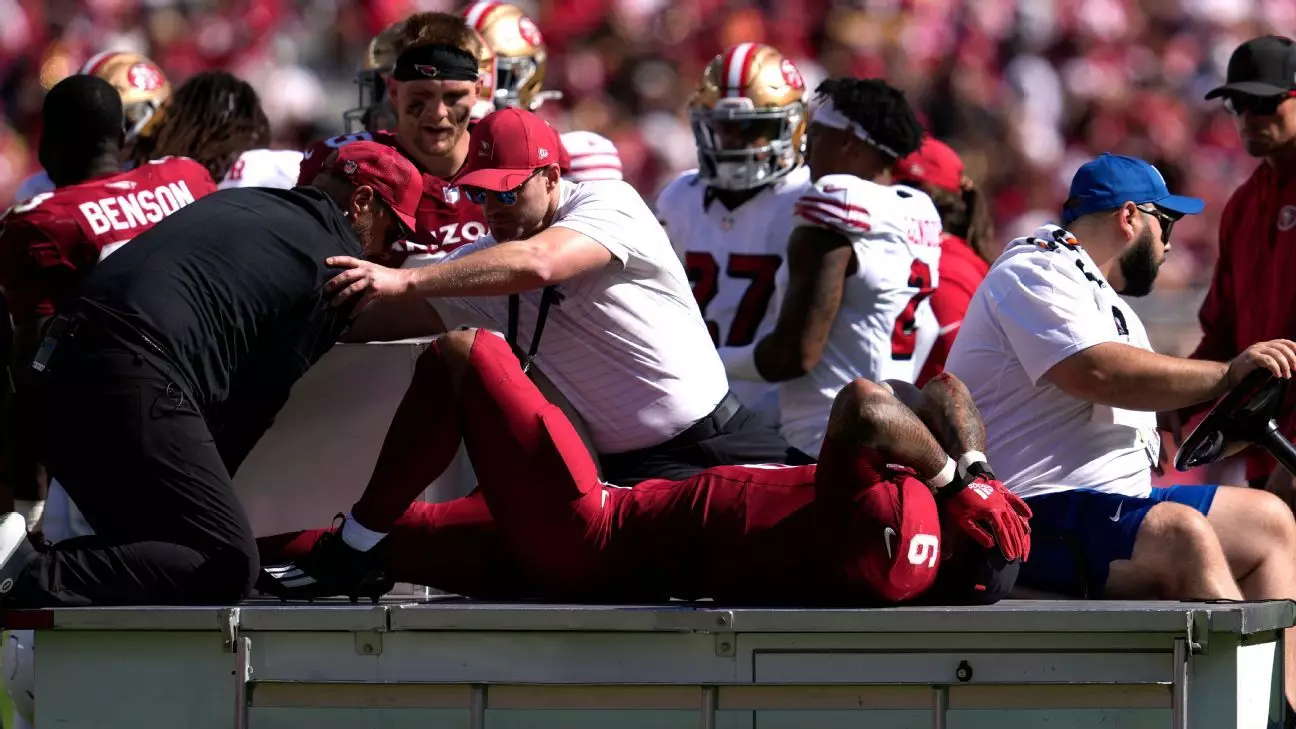In the relentless world of professional football, the line between triumph and tragedy is razor-thin. Just as players pour their heart and soul into perfecting their craft, they are constantly exposed to the unpredictable cruelty of injury. The recent injury to James Conner exemplifies this brutal truth—a devastating reminder that no matter how resilient, athletes are inherently vulnerable in a sport that celebrates physical prowess and aggressive competition. Conner’s season-ending ankle injury, sustained during a seemingly routine play, underscores the fragile nature of athletic careers and the sometimes merciless realities behind the spectacle. Amidst the celebration and camaraderie on the gridiron, injury strikes with brutal immediacy, often leaving players to grapple with dreams deferred and futures altered in an instant.
The Personal Toll Beyond the Field
What makes injuries like Conner’s so heartbreaking isn’t just the physical damage but the emotional and psychological toll inflicted on the players and their teammates. Witnessing a teammate, especially one as vital as Conner—who was not only a key player but also a mentor and a friend—collapse in pain triggers a profound sense of helplessness. Kyler Murray’s visible distress and the gesture of players taking a knee reflect the human side of this brutal game. It reveals that underneath the hype and spectacle, football is fundamentally a mirror of human vulnerability, with athletes risking their bodies to pursue greatness. These injuries serve as stark reminders that professional sports are not just games but perilous endeavors where passion and perseverance are often met with harsh consequences.
The Ethical Dilemma of High-Stakes Sports
This incident also raises uncomfortable questions about the ethics of prioritizing winning at any cost. Conner’s injury, severe and requiring surgery, highlights the physical toll exacted on players who push themselves beyond natural limits. The league’s emphasis on injury management and player safety has improved over the years, yet the sports culture still implicitly encourages relentless competition—sometimes at the expense of player well-being. When athletes chase high yards, season milestones, or personal records, they often do so while ignoring the mounting risks. The conversation must shift from celebrating risk-taking to fostering a culture where player health is paramount and injuries are seen not as mere inevitable aspects of the game but as preventable tragedies demanding urgent attention.
The Broader Implication for the Future of Football
Conner’s injury also spotlights the fragile foundation upon which football’s future sustainability rests. As fans revel in high-octane matches and teams strategize to outdo one another, the long-term health consequences for players remain a murky concern. The exuberance of the moment blinds many to the reality that football’s physical toll contributes to chronic injuries, mental health struggles, and diminished life expectancy. Should the sport continue to glamorize such aggressive play without meaningful reforms, it risks alienating the very fans and players who are essential for its survival. A prudent approach would involve re-evaluating safety standards, advocating for better protection, and honoring players’ health over fleeting victories.
Reimagining the Sport’s Moral Compass
Ultimately, this injury serves as a rallying cry for a redefined moral compass within the sport—one that recognizes the inherent dignity and humanity of each athlete. While the game demands physical toughness, it should not come at the expense of players’ futures or their health. Teams, leagues, and fans must confront the uncomfortable truth that every injury is not just a statistic but a story of dreams lost and resilience tested. Moving forward requires a courageous shift—prioritizing long-term well-being over short-term glory. Only then can football uphold its integrity and honor the sacrifices of those who risk everything for the sport they love.

